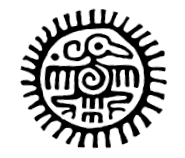Week of November 27th, 2025
Beginner's Heart
To achieve what the Zen Buddhists call “beginner’s mind,” you dispense with all preconceptions and enter each situation as if seeing it for the first time. “In the beginner’s mind there are many possibilities,” wrote Shunryu Suzuki. “but in the expert’s there are few.”As much as I love beginner’s mind, though, I advocate an additional discipline: cultivating a beginner’s heart. That means approaching every encounter imbued with a freshly invoked wave of love that is as pure as if you’re feeling it for the first time.


FREE WEEKLY NEWSLETTER
Here's a link to my free weekly email newsletter, featuring the Free Will Astrology horoscopes, plus a celebratory array of tender rants, lyrical excitements, poetic philosophy, and joyous adventures in consciousness. It arrives every Tuesday morning by 7:30 am.
Sign up here for your free subscription.
RAPTUROUS MESSAGE
You are my inspiration and my folly. You are my light across the sea, my million nameless joys, and my day's wage. You are my divinity, my madness, my selfishness, my transfiguration and purification. You are my rapscallionly fellow vagabond, my tempter and star. I want you.
—George Bernard Shaw

ALTERNATIVE HEROES' JOURNEY
In Joseph Campbell's vision of myth, the hero is typically a solitary male who renounces intimate companionship to pursue his glorious, arduous quest. Along the way, sporadic help may arrive from an ineffable muse or deity.
There are alternative scenarios for the hero's journey, but Campbell underplayed them. In the tantric tradition, for instance, a seeker's connection with a beloved human companion is essential to his or her spiritual inquiry.
Some early Christians described Jesus and Mary Magdalene as equal collaborators. Sufi mystic poet Rumi may not have actually made love with his teacher Shams (then again, he might have), but it's clear the two men sought divine communion together, not through lonely solo work.
Some modern teachers have broken from Campbell's narrow perspective. The quest for illumination, they say, can thrive on the challenges of loving and living with an actual person. In John Welwood's Love and Awakening, the author reimagines relationship as an "alliance of warriors" devoted to awakening each other's "holy longing."

REAL LOVE POETRY
Early in his career, Robert Bly rarely wrote love poetry, though he studied the work of others who did.
As he aged, he stopped reading the angst-ridden ruminations of modern poets and sought out the ecstatic love poetry of mystics like Rumi and Kabir. Increasingly, forgiveness and compassion became central aspects of Bly's emotional repertoire.
His rage about his own past romantic disappointments dissipated. In his mid40s, he wrote Loving a Woman in Two Worlds, his first collection of love poetry.
Critiquing it for The New York Times Book Review, Fred Chappell said it wasn't a real book of love poems, because there wasn't enough hatred and anger in it.
On Bly's behalf, we offer a response to Mr. Chappell: We love you, goddamnit.

LOVING OUR BODIES
Many spiritual teachers, some of whom I respect, say things like "I am not my body" or "This body is not me."
I don't understand that. It's an insult and disparagement. It's dismissive of our bodies' sublime beauty and our bodies' divine role in educating our souls.
I mean, I do agree that we are not ONLY our bodies. I do agree that a big part of us is eternal, lives free of all limitations, and is ecstatically immersed in the interconnected web of life—not just trapped in some solitary boundaried form.
But hell yes, I am my body. It's a glorious aspect of who I am. It's a miraculous creation that has taken millions of years to evolve into the masterpiece it is now.
So for me, yes, I am my body and yes, this body is me. I love my body. I am in awe of it. I am pleased to be united with it.
PS: My body is my teacher, my boon ally, my initiator, my redeemer. Its presence and influence imprint themselves on my eternal soul.

PLEASURE EQUALS PEACE?
Among human beings, a pleasure-prone personality rarely displays violence or aggressive behaviors, and a violent personality has little ability to tolerate, experience, or enjoy sensuously pleasing activities. As either violence or pleasure goes up, the other goes down.
—James W. Prescott, "Body Pleasure and the Origins of Violence"



